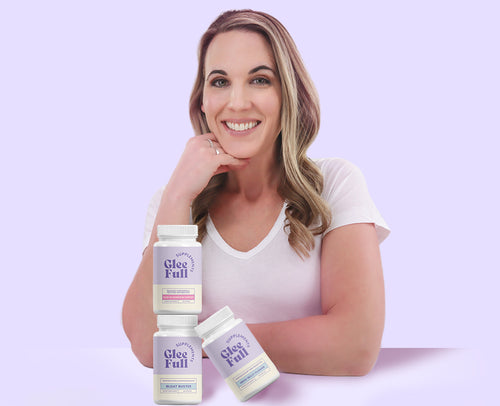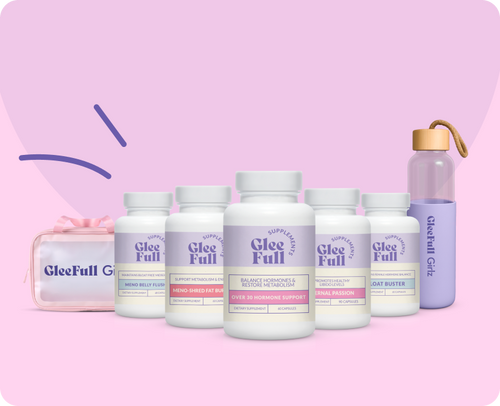
As we age, our skin changes. Lines and wrinkles form as the underlying structures supporting the skin weaken. Plus, sun exposure and other environmental factors can damage the skin's surface, leading to a loss of elasticity and dryness. While there's no way to stop the aging process completely, there are plenty of things and habits you can do to take care of your skin and minimize these common problems. Keep reading for tips on keeping your skin looking young and healthy!
What are wrinkles?
Wrinkles are cracks or furrows in the skin that generally appear in older individuals and increase with age. Wrinkling is a normal part of aging that is mostly unavoidable. However, not everyone develops them to the same extent and at the same speed, owing to a variety of reasons.
How do wrinkles form on the skin?
How wrinkled your skin becomes later in life is determined by a number of factors. Some of them, such as age and genetics, are unavoidable causes. These are referred to as intrinsic factors since they are particular to you and immutable. A variety of variables, on the other hand, may be entirely avoided or at least reduced in exposure. These are known as the extrinsic causes of wrinkles. Let's take a look at some of the top intrinsic and extrinsic reasons for wrinkle formation.
Aging
As we get older, our skin loses its natural flexibility. It also becomes drier and thinner as a result of the reduced production of natural oils and the gradual loss of the skin's protective fat layer. All of these changes limit the skin's capacity to recover from injury and maintain its normal form. So as we age, our skin acquires more wrinkles.
Chronic stress
The body releases various hormones during periods of stress in order to assist you to deal with the situation. When these same chemicals are exposed to the body for too long, they can do harm. One such hormone is cortisol. Cortisol is a natural foe of connective tissue and chronic elevations in cortisol levels accelerate connective tissue breakdown and the development of wrinkles.
Dehydration
If you skip out on your eight glasses a day, you won't just be putting your health at risk-you might also notice more wrinkles. That's because dehydration can cause the skin to become dry, thin, and less elastic. As a result, the skin is more likely to develop wrinkles and other signs of aging.
Genetics
Some people are simply born with genes that predispose them to wrinkle formation. If your parents or grandparents had wrinkles, you're more likely to develop them as well.
Poor nutritional habits
Poor feeding habits such as consuming unhealthy amounts of trans fats and processed sugars put the body in a state of chronic inflammation. Swelling is known to affect collagen synthesis and accelerates the aging process. Natural foods rich in vitamins, minerals, essential oils, and antioxidants are great for the skin and keep your skin looking fresh, smooth, and supple.
Smoking
Smoking cigarettes is one of the worst things you can do for your skin. That's because smoking accelerates the skin aging process by damaging collagen and elastin-the proteins that keep skin firm and elastic. In addition, smoking decreases the blood flow to the skin, which means it gets less oxygen and nutrients. All of these effects combine to make smokers more prone to developing wrinkles than nonsmokers.
Ultraviolet (UV) light exposure
Exposure to ultraviolet (UV) radiation from the sun is one of the most significant extrinsic risk factors for wrinkle formation. That's because UV rays damage the skin's supportive structures, including collagen and elastin fibers. This damage leads to a loss of elasticity and flexibility, which in turn causes the formation of lines and wrinkles.
Other skin problems related to aging
As we age, our skin is also more susceptible to a variety of other problems, including age spots, dryness, and rash.
Age spots
Age spots are flat, brown patches that occur on sun-exposed areas of the skin. They are caused by years of exposure to UV radiation, which damages the pigment-producing cells in the skin.
Dry skin
Dry skin is a common problem as we age since the skin's ability to retain moisture declines with time. This can be exacerbated by factors such as cold weather, low humidity, and hot showers.
Rashes, particularly eczema and seborrheic dermatitis
Aging skin is also more susceptible to rashes, particularly eczema and seborrheic dermatitis. These conditions cause the skin to become red, itchy and inflamed.
Eczema and seborrheic dermatitis are different skin problems. Eczema is a general term for several types of skin inflammation. Seborrheic dermatitis is a kind of eczema that affects the scalp, face, and chest.
Eczema is characterized by dry, red, itchy skin that can blister or weep. Seborrheic dermatitis is characterized by scaly, flaky skin.
Causes of other aging skin problems
While the causes of some aging skin problems, such as age spots and dryness, are fairly well understood, the cause of others, such as eczema and seborrheic dermatitis, is not. However, there are a number of theories about what may play a role in their development.
One theory is that they are caused by an overgrowth of normal skin bacteria. Another is that they are the result of an immune system reaction to changes in the composition of the skin's surface oils. It is also possible that they are triggered by hormonal changes or psychological stress.
There are a number of other skin problems that can occur as we age, but these are the most common. If you are concerned about any changes in your skin, be sure to see a dermatologist for an evaluation.
How to take care of your skin to prevent wrinkles and aging skin problems?
Now that we know what can cause wrinkles and other aging skin problems, let's look at some ways to prevent them.
Here are a few tips:
Wear sunscreen
UV radiation is one of the most significant extrinsic risk factors for wrinkle formation. Protect your skin by applying sunscreen with an SPF of 30 or higher every day, even on cloudy days.
Don't smoke
Smoking accelerates the skin aging process by damaging collagen and elastin-the proteins that keep skin firm and elastic. If you don't smoke, don't start. If you do smoke, quitting is the best thing you can do for your skin.
Eat a healthy diet
A healthy diet is best for your whole body, including your skin. Eat plenty of fruits, vegetables, and whole grains, and limit your intake of sugar and unhealthy fats.
Stay hydrated
Drink plenty of water to keep your skin hydrated from the inside out.
Manage stress
Stress can take a toll on your whole body, including your skin. Try to manage stress with relaxation techniques such as yoga or meditation.
These are just a few ways to prevent wrinkles and other aging skin problems. For more information, please see a dermatologist.
What kinds of products can help reduce wrinkles and aging skin problems?
There are a number of over-the-counter and prescription products that can help reduce wrinkles and other aging skin problems.
Antioxidants
Antioxidants are substances that scavenge harmful toxins called free radicals. Free radicals can damage collagen and elastin, leading to the formation of wrinkles. Antioxidants can help to protect the skin from this damage.
Retinoids
Retinoids are vitamin A derivatives that are available in both over-the-counter and prescription formulations. They work by stimulating collagen production, which can help reduce the appearance of wrinkles.
Alpha hydroxy acids
Alpha hydroxy acids are chemicals that are derived from sugarcane and other fruits. They work by exfoliating the top layer of the skin, which can help to reduce the appearance of wrinkles.
There are a number of other products that can help reduce wrinkles and other aging skin problems. Other important anti-aging nutrients include:
Vitamin A
Vitamin A is required for healthy skin cell development and has antioxidant properties. It also aids in the formation of facial oil glands, keeping your skin hydrated and smooth.
Vitamin C
Vitamin C is an antioxidant and a vitamin needed for collagen synthesis.
Vitamin E
Vitamin E is a potent antioxidant and anti-inflammatory substance that aids in the absorption of UV radiation.
Omega-3 fatty acids
Omega-3 fatty acids assist to control skin oil production, keep the skin hydrated, and smooth rough and leathery skin.
Selenium
Selenium is an antioxidant that aids in the protection of the skin against UV rays.
Zinc
Zinc is a mineral that helps to keep the skin healthy and aids in wound healing. It is an essential mineral for wound healing. It aids in epithelialization, which is a scientific term that means the formation of skin tissue. It's not just important for wounds to heal faster; it's also necessary for cells to proliferate and specialize during development.
The bottom line
Wrinkles and other aging skin problems are a normal part of the aging process. However, there are a number of ways to prevent them. Wearing sunscreen, eating a healthy diet, staying hydrated, and managing stress can all help. There are also a number of over-the-counter and prescription products that can help reduce wrinkles and other aging skin problems. Be sure to talk to a dermatologist first about which ones may be right for you.
CollaCode Collagen
Looking for a collagen supplement that will actually work? Look no further than Gleefull's CollaCode Collagen. This unique formula is specifically designed to unlock your body's code at a molecular level, making way for the best possible results.
Unlike other collagen supplements, CollaCode Collagen focuses on delivering not only the right type of collagen but also making sure that your body can properly digest and absorb the glycine proteins you're feeding it. Thanks to its unique combination of marine type 1 collagen, acerola cherry, bamboo extract, and horsetail extract, CollaCode Collagen is the most effective and efficient collagen supplement on the market today.
CollaCode Collagen contains:
Marine Type 1 Collagen - There are five varieties of collagen in total, each with its own set of benefits. Marine Collagen is the richest source of Type 1 collagen, which is a key component that helps minimize fine lines and wrinkles in your skin.
Acerola Cherry - Acerola Cherry is one of the most potent sources of natural ascorbic acid (vitamin C)1, with multiple phytonutrients acting as collagen-signaling receptors in your body's collagen-producing cells.
Bamboo Extract - Bamboo extract is a natural source of silica, which is necessary for the synthesis of collagen in your body. Silica aids in the absorption of glycine through CollaCode Collagen.
Grass Fed Bovine Collagen- Natural, grass fed bovine collagen is critical for a well balanced full spectrum of collagen.
So if you are looking for a collagen supplement that will actually give you results, look no further, try CollaCode Collagen!
Lifting and firming Anti-Aging Cream
A good Lifting and Firming Anti Aging Cream contains:
Aloe Barbadensis Leaf Extract - A plant-based extract that has been used for millennia to promote healing and repair. It's well-known for its wide range of advantages, including its capacity to moisturize and soothe skin. Aloe Barbadensis Leaf Extract may also be utilized as a topical treatment for burns and other skin injuries.
Carthamus Tinctorius (Safflower) Seed Oil - Safflower oil is a natural oil derived from the safflower plant. It's been used in medicine for centuries, and it's also been used to moisturize and nourish the skin.
Tilia Cordata Flower Extract - A natural extract derived from the Linden tree. It's well-known for its numerous advantages, including skin hydration and soothing. It's commonly utilized in skincare products like moisturizers, lotions, and sunscreens. Tilia Cordata Flower Extract, like aloe leaf extract, can also be used to treat burns and other types of skin wounds.
Salvia Officinalis (Sage) Leaf Extract and Trigonella Foenum-graecum Seed Extract - Sage extract is a natural remedy. For ages, it has been used to treat various skin problems. It's well-known for its numerous benefits, including the capacity to soothe and moisturize the skin. Trigonella Foenum-graecum Seed Extract is an organic extract from the Fenugreek plant. It's known for having antioxidant and anti-inflammatory properties that benefit the skin.
Home remedies for reducing wrinkles and aging skin problems
There are a number of home remedies that can help to reduce wrinkles and other aging skin problems. Many of these remedies make use of natural ingredients that are readily available in most households.
Some home remedies for reducing wrinkles and aging skin problems include:
1. Apply Aloe Vera Gel to your Skin: Aloe Vera gel is a natural ingredient that has numerous benefits for the skin. It can help to moisturize and hydrate the skin, and it also has anti-inflammatory properties. Applying aloe vera gel to the skin can help to reduce the appearance of wrinkles.
2. Eat Avocados: Avocados are a rich source of healthy fats, vitamins, and minerals. They can help to nourish and moisturize the skin.
3. Apply Coconut Oil: Coconut oil is a natural ingredient that has numerous benefits for the skin. It can help maintain hydration of the skin, and it also has anti-inflammatory properties.
4. Use Egg White as Facial Mask: Eggs are a rich source of protein and other nutrients that are beneficial for the skin. They can help to firm and tone the skin. Applying an egg white mask to the skin can help to reduce the appearance of wrinkles.
5. Use Honey: Honey is a natural ingredient that has numerous benefits for the skin. It can help to hydrate and moisturize the skin, and it also has anti-inflammatory properties. Honey can also help to reduce the appearance of wrinkles. How to use honey?
There are a number of ways to use honey for reducing wrinkles and other aging skin problems. One way is to apply it directly to the skin. Another way is to add it to a facial mask or scrub. Honey can also be consumed orally in order to help reduce the appearance of wrinkles.
6. Apply Olive Oil on your Skin: Olive oil is a natural ingredient that has numerous benefits for the skin. It can help to hydrate and moisturize the skin, and it also has anti-inflammatory properties. Olive oil can also help to reduce the appearance of wrinkles.
7. Use Milk: Milk is a natural ingredient that has numerous benefits for the skin. There are a number of ways to use milk for reducing wrinkles and other aging skin problems. One way is to apply it directly to the skin. Another way is to add it to a facial mask or scrub. Milk can also be consumed orally in order to help reduce the appearance of wrinkles.
8. Eat Papaya: Papaya has a natural ingredient that has numerous benefits for the skin. It can help to hydrate and moisturize the skin, and it also has anti-inflammatory properties.
9. Drink Plenty of Water: Drinking plenty of water is essential for overall health, and it's also beneficial for the skin. Water helps to keep the skin hydrated and supple. It can also help to flush out toxins from the body, which can contribute to the formation of wrinkles.
10. Get Adequate Sleep: Getting enough sleep is important for overall health, and it's also beneficial for the skin. When you get enough sleep, your body is able to repair and regenerate cells. This process can help to reduce the appearance of wrinkles.
Professional solutions to wrinkles and aging skin problems
If home remedies do not work, there are a number of solutions that can be used to reduce the appearance of wrinkles and other aging skin problems. These solutions include:
1. Botox Injections: Botox injections, short for Botolinum toxin injections are a popular treatment for reducing the appearance of wrinkles. Botolinum toxin injection works by temporarily paralyzing the muscles that cause wrinkles.
2. Dermal Fillers: Dermal fillers are another popular treatment for reducing the appearance of wrinkles. Dermal fillers work by filling in the lines and wrinkles on the face.
3. Facial Peels: Facial peels are a type of cosmetic procedure that can help to reduce the appearance of wrinkles. Facial peels work by removing the outer layer of skin, which can help to smooth out the appearance of wrinkles.
4. Laser Resurfacing: Laser resurfacing is a type of cosmetic procedure that can help to reduce the appearance of wrinkles. Laser resurfacing uses laser technology to remove the outer layer of skin, which can help to smooth out the appearance of wrinkles.
5. Microdermabrasion: Microdermabrasion is a type of cosmetic procedure that can help to reduce the appearance of wrinkles. Microdermabrasion works by using a special device to exfoliate the skin and remove the outer layer of skin, which can help to smooth out the appearance of wrinkles.
6. Chemical Peel: A chemical peel is a type of cosmetic procedure that can help to reduce the appearance of wrinkles. Chemical peels work by using a chemical solution, formulated by dermatologists and chemists to remove the outer or first layer of the skin, which can help to smoothen out the appearance of wrinkles.
7. Facial Massage: Facial massage is a type of treatment that can help to reduce the appearance of wrinkles. Facial massage works by stimulating blood flow to the face, which can help to reduce the appearance of wrinkles.
8. LED Light Therapy: LED light therapy is a type of treatment that can help to reduce the appearance of wrinkles. LED light therapy works by using LED lights to stimulate collagen production, which can help to reduce the appearance of wrinkles.
9. Radiofrequency Treatment: Radiofrequency treatment is a type of treatment that can help to reduce the appearance of wrinkles. Radiofrequency treatment works by using radio waves to stimulate collagen production, which can help to reduce the appearance of wrinkles.
10. Ultrasound Treatment: Ultrasound treatment is a type of treatment that can help to reduce the appearance of wrinkles. Ultrasound treatment works by using sound waves to stimulate collagen production, which can help to reduce the appearance of wrinkles.
Our best recommendation: Consult a dermatologist
It is never too late to start caring for your skin and prevent wrinkles from forming. There are many solutions available, both surgical and non-surgical. If you are not happy with the appearance of your skin, we suggest consulting first with a dermatologist to find out which treatment is best for you.
Conclusion
Wrinkles are a natural part of the aging process, but that doesn’t mean you have to suffer from them. There are plenty of natural and professional solutions available to help reduce their appearance and keep your skin looking young and healthy. We hope this article has given you a good starting point for finding the right solution for you. Have you tried any of these anti-aging treatments? Let us know in the comments below!

 Meno-Burn Collagen
Meno-Burn Collagen
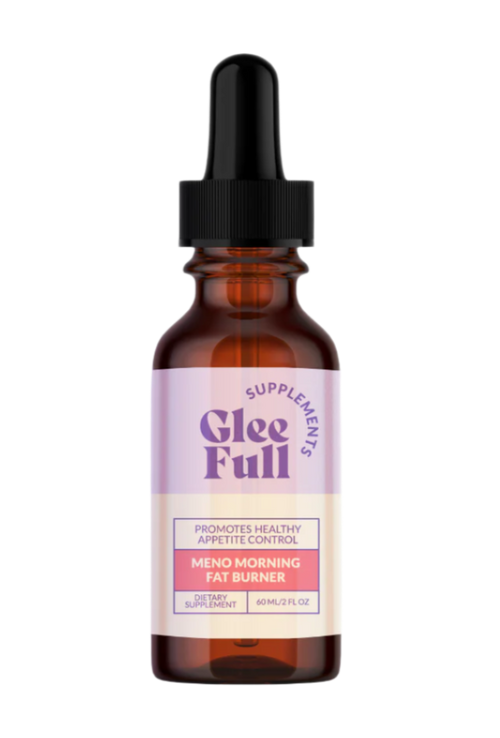 Meno Morning Fat Burner
Meno Morning Fat Burner
 Meno-Shred Fat Burner
Meno-Shred Fat Burner
 Carb Blocker
Carb Blocker
 Flat Tummy Tea
Flat Tummy Tea
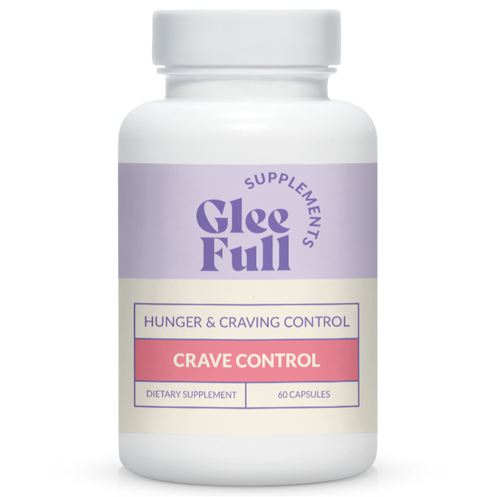 GLP-1 Crave Control
GLP-1 Crave Control
 Over 30 Hormone Support
Over 30 Hormone Support
 Over 30 Hormone Support Plus
Over 30 Hormone Support Plus
 Estro Harmony
Estro Harmony
 Adrenal Restore
Adrenal Restore
 Eternal Passion
Eternal Passion
 Thyroid Balance
Thyroid Balance
 HormoneLyte
HormoneLyte
 Post Meno Boost
Post Meno Boost
 Meno Brain Support
Meno Brain Support
 Meno Belly Flusher
Meno Belly Flusher
 Meno Gut Advanced
Meno Gut Advanced
 Bloat Buster
Bloat Buster
 Meno Belly Night Burn
Meno Belly Night Burn
 Meno Joint Relief
Meno Joint Relief
 Over 30 Multi Vitamin
Over 30 Multi Vitamin
 Meno Gluco Control
Meno Gluco Control
 V-Rejuvenation
V-Rejuvenation
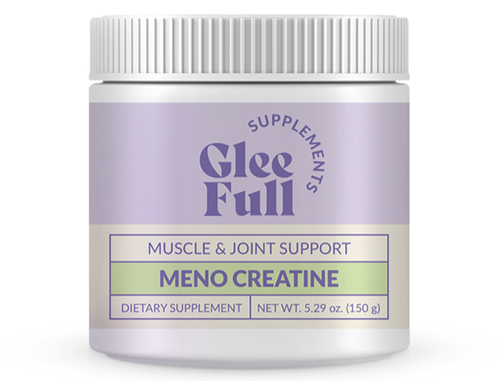 Meno Creatine
Meno Creatine
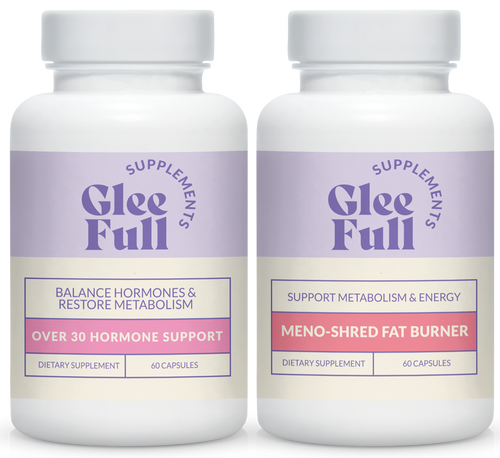 Meno-Weight Loss System
Meno-Weight Loss System
 Cravings Control System
Cravings Control System
 Meno Full Body Reset
Meno Full Body Reset
 Meno-Detox System
Meno-Detox System
 Meno Joint Support System
Meno Joint Support System
 Meno Deep Sleep System
Meno Deep Sleep System
 Meno Mood Boost System
Meno Mood Boost System
 Complete Hormone Reset Bundle
Complete Hormone Reset Bundle
 Ultra Fat Burner Bundle
Ultra Fat Burner Bundle
